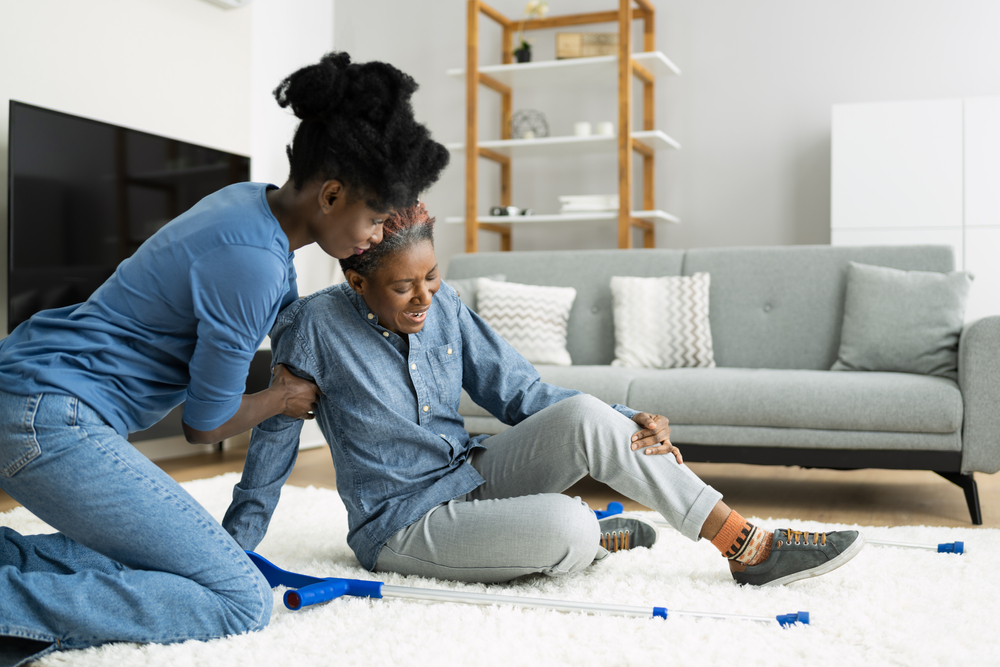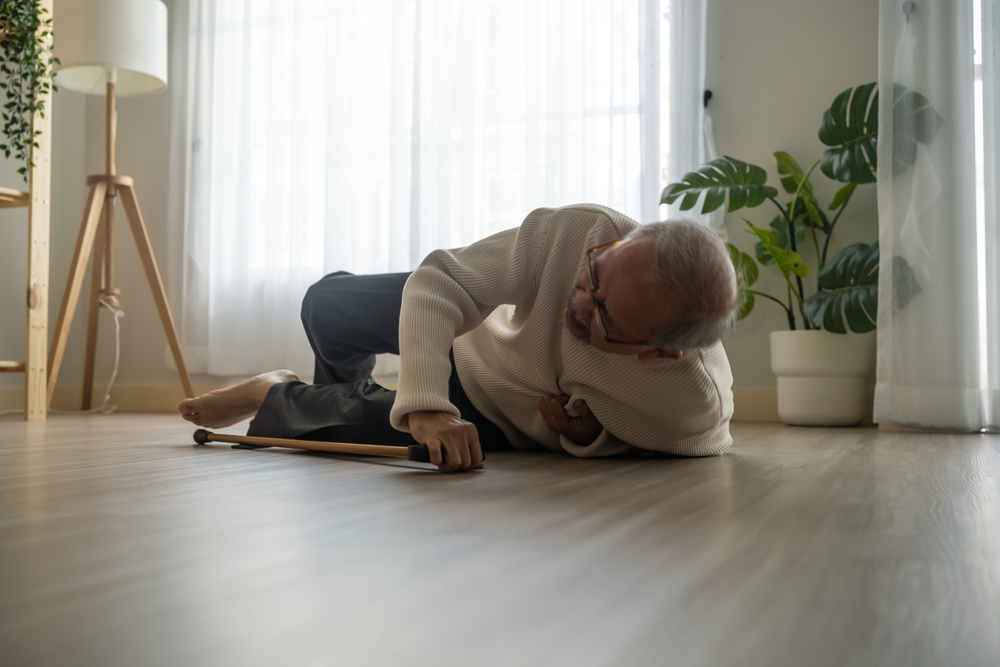Fall Precautions for the Elderly
Category:

The thought of falling is scary for anyone and it is particularly frightening for the elderly. In 2021, the CDC recorded over 38,000 deaths from falls in adults over age 65 and emergency departments recorded over 3 million visits for older adult falls. This means that fall and safety precautions in the home are of paramount importance as you and your loved one’s age.
Home Safety Measures for the Elderly
There are many simple things you can do to prioritize safety for the elderly at home. Here are some of our top home safety tips for the elderly:
- Tape down area rugs or remove them entirely. Think about how many times you have to adjust the rug in front of your sink or in front of your garage door. It slides, wrinkles, gets stuck on the door, and otherwise becomes a hazard. They are a significant trip risk for your elderly loved ones (and you!) so make sure they are firmly secured to the floor.
- Declutter. You need an excuse to get rid of the extraneous things that pile up around your house anyway, and taking fall risk precautions is a great reason to de-clutter. Remove cords from hallways or other areas where people walk. Move small furniture items like coffee tables and plant stands out of high traffic areas. Check for those random piles of shoes, newspapers, books or clothes that seem to appear out of nowhere and put things back where they belong.
- Give yourself more light. Put nightlights in hallways and stairways to help with nighttime bathroom visits. Make sure your loved one can easily reach and turn on the lamp next to their bed. Be sure there are no obstacles between chairs or beds and light switches. Always turn lights on before going up and down the stairs.
- Use assistive devices. Put non-slip mats in the bathroom and add grab bars in the shower and around the toilet. Add a second railing on each side of your staircase. Put non-slip tread on wood stairs.
All of these safety precautions for the elderly benefit you, the caregiver, as well, so if you are modifying your own home to take care of your loved one, see it as an opportunity to make the space safer for everyone, rather than a chore.
If you do notice your loved one beginning to have problems with mobility or balance, it is helpful to speak to their doctor. They may have medications that make them dizzy and can be adjusted. There may be occupational therapy or other exercises they can do to improve their strength and balance so they have less of a fall risk.
It is also important to have a plan if your loved one does take a fall while you are not around. There are several medical alert devices that your loved one can wear to make sure they can always reach help if they need it. This gives both them and you peace of mind and helps them maintain their independence longer – something that everyone wants.
Subscribe
Date: 2024-08-15
Category:


